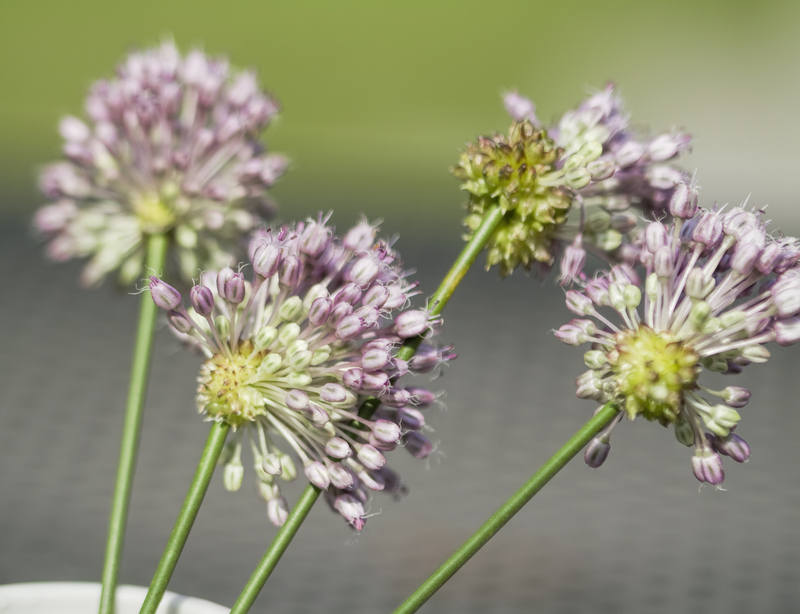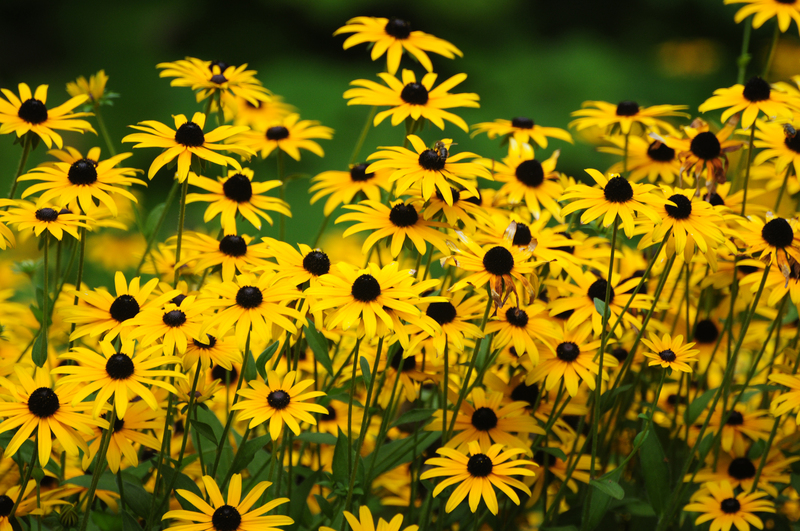Organic Waste Revolution: Soil Richness Unlocked
Posted on 22/09/2025
Organic Waste Revolution: Soil Richness Unlocked
Discover how the Organic Waste Revolution is transforming agriculture, gardening, and environmental sustainability. This comprehensive guide explores unlocking soil richness through innovative and practical approaches to using organic waste. Delve into proven methods, scientific insights, and actionable tips to enrich your soil naturally, improve crop yield, and minimize environmental impact. Whether you're a passionate gardener, eco-conscious homeowner, or agriculture professional, join the movement to unearth the hidden potential of organic waste!

Understanding the Organic Waste Revolution
What is Organic Waste?
Organic waste refers to any biodegradable material derived from living organisms, including kitchen scraps, fruit and vegetable peels, grass clippings, leaves, agricultural residues, food waste, and even paper products. Unlike synthetic materials, organic waste is naturally recyclable and can be transformed into valuable resources.
- Food scraps
- Yard waste
- Agricultural by-products
- Wood and paper products
Why is Organic Waste Important?
An astonishing amount of organic material ends up in landfills each year, emitting greenhouse gases and contributing to pollution. Revolutionizing how we handle organic waste can help preserve natural resources, reduce climate impact, and regenerate soil health for future generations.
The Science Behind Soil Richness
Healthy soil lies at the heart of the organic waste revolution. By integrating organic matter, soil structure improves, leading to greater fertility, enhanced water retention, and improved nutrient cycling.
- Microbial activity: Organic waste feeds beneficial bacteria and fungi, which break down complex molecules into plant-available nutrients.
- Soil structure: Improved aeration and water infiltration, reducing erosion and runoff.
- Carbon sequestration: Increased organic matter helps lock carbon in the soil, mitigating climate change.
From Trash to Treasure: How Organic Waste Enriches Soil
Composting: Nature's Ultimate Recycling
Composting is a core practice in the organic waste revolution, converting unwanted waste into rich, dark humus teeming with life. By combining greens (nitrogen-rich material) and browns (carbon-rich material), microbes work their magic, producing a priceless soil amendment.
- Improves water retention and drainage
- Supplies slow-release nutrients
- Suppresses soil-borne diseases
- Reduces need for chemical fertilizers
Vermicomposting: Worms at Work
Red wiggler worms devour organic leftovers, transforming them into nutrient-rich castings, also known as "black gold" for gardeners. Vermicompost improves soil texture, microbial diversity, and nutrient content, especially for delicate seedlings and houseplants.
Mulching: Protect and Nourish
Utilizing mulch made from organic waste like wood chips, leaf litter, or grass clippings shields soil from erosion, regulates moisture, and delivers nutrients as it decomposes.
Benefits of the Organic Waste Revolution for Soil Health
- Boosts soil organic matter for healthier root systems and increased crop yields.
- Enhances soil biodiversity, encouraging beneficial microbes and earthworms.
- Improves soil structure, fostering better water absorption and reducing compaction.
- Minimizes need for chemical interventions, lowering costs and promoting environmental safety.
- Reduces landfill waste while capturing valuable nutrients for plant growth.
Unlocking the Secrets: The Microbial Engine
Soil organisms are the unsung heroes of the organic waste revolution. Bacteria, fungi, protozoa, and nematodes break down organic matter, making nutrients available and building resilient soil systems. A teaspoon of healthy soil can contain over a billion microbes, all cooperating to support plant life!
Modern Innovations in Organic Waste Processing
Community Composting Initiatives
Cities and neighborhoods worldwide are joining the revolution by launching community composting programs. These networks collect food and yard waste, process it locally, and offer nutrient-rich compost back to residents and urban farms.
Industrial-Scale Organic Waste Conversion
Biogas plants and anaerobic digesters are converting massive volumes of organic waste into renewable energy and digestate--a potent soil amendment. Businesses and farms are adopting these systems to reduce waste outputs, generate green electricity, and cut their carbon footprint.
Biochar: Carbon's Comeback
Biochar is a stable, carbon-rich material produced by heating organic waste in low-oxygen environments. When added to soil, it enhances water retention, binds nutrients, and boosts microbial activity for long-term soil regeneration.
Implementing the Organic Waste Revolution at Home
Simple Steps to Start Composting
- Choose a composting method: bin, tumbler, or heap. Vermicomposting is ideal for small spaces.
- Layer your compost: Alternate between "greens" (food scraps, grass clippings) and "browns" (leaves, cardboard).
- Monitor moisture and aerate: Keep your pile damp (like a wrung-out sponge) and turn regularly to introduce oxygen.
- Avoid: meat, dairy, oils, and diseased plants.
Utilizing Organic Mulch in the Garden
Spread a 2-4 inch layer of mulch around plants, trees, and walkways. Choose from grass clippings, leaf mold, or shredded bark. As the mulch breaks down, it continually feeds your soil and prevents weed growth.
Collaborate with Your Community
- Join local composting projects or start a community collection bin.
- Share compost and mulch with neighbors and local gardens.
- Support local policies encouraging organic waste diversion and sustainable soil practices.
The Environmental Impact: Beyond the Backyard
Reducing Greenhouse Gas Emissions
Landfilled organic waste releases methane, a potent greenhouse gas. By recycling organic material, methane emissions are drastically curtailed, combating climate change directly.
Restoring Ecosystems and Reducing Pollution
- Compost-enriched soils filter water, reduce runoff, and lower the risk of pollution in rivers and lakes.
- Improved agricultural soil reduces chemical runoff and soil erosion, fostering healthier habitats for wildlife.
Supporting Sustainable Agriculture
Farmers around the world are embracing sustainable practices by turning to compost, green manure, and other forms of organic soil amendments. As soil organic matter increases, crop resilience and productivity rise--while input costs fall.
Challenges and Solutions in the Organic Waste Revolution
Contamination Concerns
Non-organic items mixed with compostable waste--like plastics and metals--can compromise soil health. Education and clear labeling are key to a successful transformation.
Scaling Up Organic Waste Processing
- Modern infrastructure: Cities need to invest in separate collection systems and advanced composting facilities.
- Public participation: Community engagement and incentives encourage higher participation rates.
The Future of Soil Richness: Embracing the Organic Waste Revolution
As environmental challenges mount, the organic waste revolution offers a beacon of hope for regenerative agriculture and urban greening. Governments, farmers, gardeners, and citizens are recognizing the immense value of turning waste into ecological wealth.
- Advancements in composting technology will make processing faster and more efficient.
- Increased awareness will drive greater organic waste diversion from landfills globally.
- Policy changes will incentivize soil-friendly waste management in both urban and rural settings.

Conclusion: Soil Richness Unlocked for a Greener Tomorrow
The Organic Waste Revolution is more than a trend--it's a profound shift in how we view waste, food, and the very soil beneath our feet. By dedicating ourselves to unlocking soil richness through recycled organics, we enrich not only our gardens and farms but also the health of the planet. Embrace composting, mulching, vermiculture, and community action to join the movement today--your soil and future generations will thank you!
FAQs: Organic Waste and Soil Health
-
Q: How long does it take for compost to be ready?
A: Depending on the method and conditions, finished compost can be ready in 2-6 months. -
Q: Can meat or dairy go in my compost?
A: Generally, avoid these items as they attract pests and slow down decomposition. -
Q: Is organic waste composting suitable for small homes?
A: Yes! Vermicomposting or bokashi buckets are perfect for apartments and small spaces. -
Q: Does compost attract animals?
A: Properly managed compost bins with lids and regular turning minimize odor and pests.
Ready to Join the Organic Waste Revolution?
Begin your journey today by sorting your organics, learning about local programs, and educating others about the benefits of unlocking soil richness. Together, we can cultivate healthier soils, support vibrant ecosystems, and create a more sustainable world--one banana peel or leaf at a time!
```Latest Posts
Organic Waste Revolution: Soil Richness Unlocked
Cultivate a Thriving Garden with 9 Essential Tips for Starters
From Neglect to Nirvana: Begin Your Garden Makeover
Transform your home with aromatic plants in a personalized herb garden

